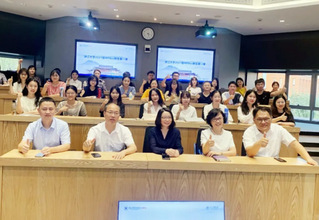时间:2025年6月24日(周二)15:00
地点:浙大管院A423会议室
主题:Insiders’ Front-Running of Peer Earnings Announcements
主讲人:张勇副教授,香港理工大学
主持人:王文明研究员,浙江大学管理学院
主讲人简介:
Prof. Yong Zhang (張勇) is an Associate Professor in School of Accounting and Finance, the Hong Kong Polytechnic University. He has broad research interests including Corporate Governance, Financial Regulations, Executive Compensation, Insider Trading, and the role of media in financial markets. His research has been published in leading research journals in both accounting and finance such as Journal of Accounting Research, Journal of Accounting and Economics, Management Science, Contemporary Accounting Research, Review of Accounting Studies, and has been featured in Harvard Law School Forum on Corporate Governance and Financial Regulation. He has also served as ad hoc reviever for Journal of Accounting and Economics, Management Science, Journal of International Business Studies, Contemporary Accounting Research, and a commentator for CCTV and Reuters News. As principal investigator, he was granted multiple GRF funds.
摘要:
While typical blackout policies prohibit insiders from trading in windows preceding earnings announcements of their own firms, we are not aware of any rules restricting insider trading in short windows preceding earnings announcements of other firms, including their industry peers. We develop a measure of insiders’ tendency to trade in short windows preceding (front-run) industry peers’ earnings announcements. Insiders’ front-running tendency increases over the months within each calendar quarter, consistent with them learning from public information and using the knowledge gained to aid in their trading. Insiders’ front-running tendency and the profitability of such trades vary significantly not only with the information asymmetry around the focal firm, but also with the information asymmetry around the peers and with the economy linkage between the focal firm and the peers. At the outbreak of the COVID crisis in April 2020, when information asymmetry is particularly high, both insiders’ front-running tendency and profitability spike. Our evidence reveals a novel form of insider trading, where insiders profit from a combination of public information and private knowledge.





